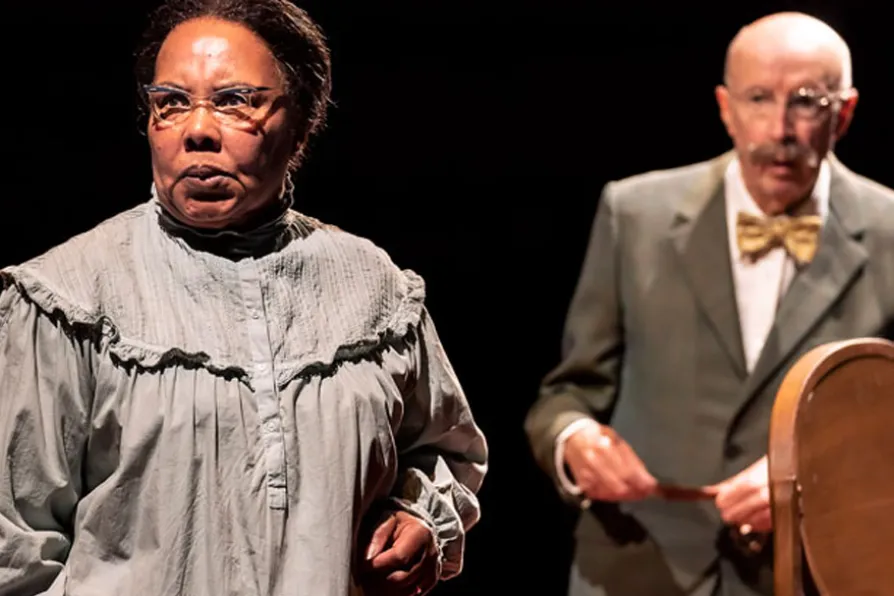RITA DI SANTO draws attention to a new film that features Ken Loach and Jeremy Corbyn, and their personal experience of media misrepresentation

 ILLUMINATING: Cleo Sylvestre and Alan David
[Johan Persson]
ILLUMINATING: Cleo Sylvestre and Alan David
[Johan Persson]
THE NATIONAL THEATRE’S Olivier stage has been transformed into an arena for this imaginative reworking of Dylan Thomas’s 1954 radio play, with Sian Owen’s additional material, set in a care home, framing Thomas’s poetic invocation of a day in the life of the Welsh village Llareggub.
With more than a passing similarity to the playwright himself, Martin Sheen undertakes the narrator’s role and desperately attempts to reconnect with his alienated and unresponsive father through memories of the past.
The home’s residents are gradually drawn into the fantastical imaginings of the dreaming Llareggub characters and, as the day unfolds, the village appears in a series of vignettes as the old people throw off their years to reinvest their characters with all of Dylan’s passion, spleen and humour.

Although this production was in rehearsal before the playwright’s death, it allows us to pay homage to his life, suggests MARY CONWAY

GORDON PARSONS is blown away by a superb production of Rostand’s comedy of verbal panache and swordmanship

SIMON PARSONS is beguiled by a dream-like exploration of the memories of a childhood in Hong Kong











